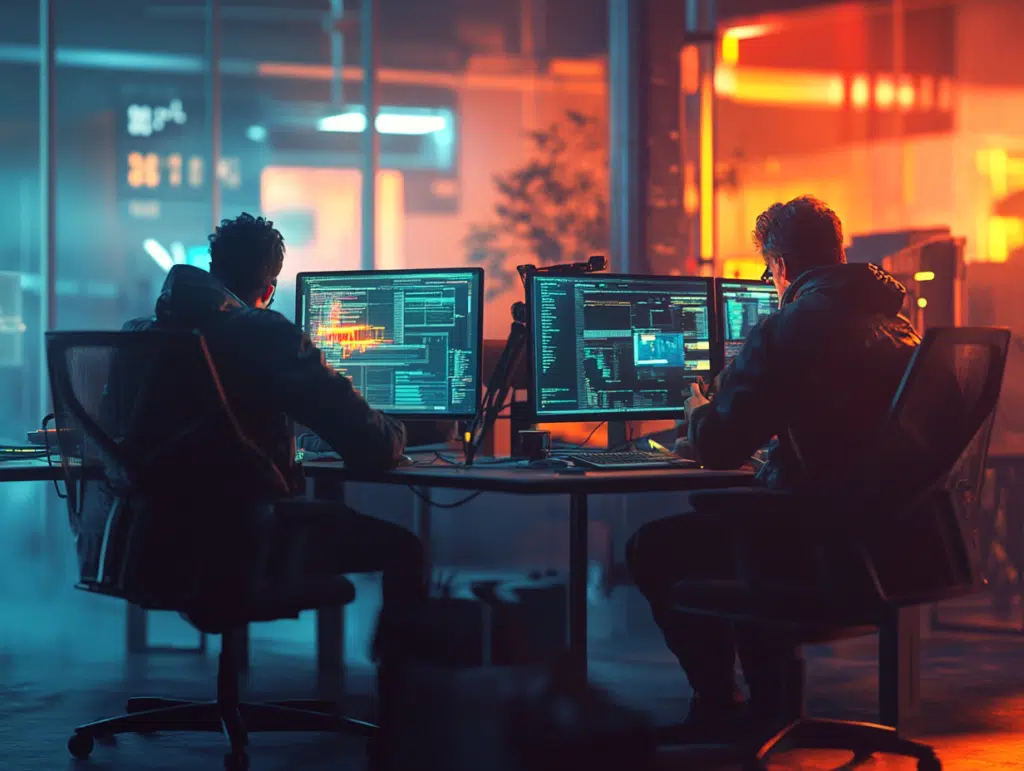Understanding Web 3.0 and Its Importance
Web 3.0 represents the next evolution of the internet, moving beyond the social and interactive Web 2.0 to a more intelligent, decentralized digital ecosystem. While Web 2.0 connected people, Web 3.0 connects data, applications, and value in ways previously unimaginable. For brands in Morocco and globally, understanding this shift is no longer optional but essential for future relevance.
Web 3.0 is built on three fundamental technological pillars: blockchain technology, artificial intelligence, and decentralized networks. These technologies work together to create an internet experience that’s more private, secure, and user-controlled than ever before.
Key Elements of Web 3.0 That Brands Should Understand
Decentralization
Web 3.0 shifts power from centralized platforms to distributed networks where users maintain control of their data and digital assets. For Moroccan businesses accustomed to traditional platforms, this represents both a challenge and opportunity to rethink customer relationships.
Tokenization and Digital Assets
Digital assets, cryptocurrencies, and NFTs (Non-Fungible Tokens) allow for new forms of value exchange, ownership, and customer engagement. Brands can create unique digital experiences that customers actually own, not just access.
Data Sovereignty
In Web 3.0, users control their personal data and can choose when and how to share it with brands. This fundamentally changes the data collection paradigm that many marketing strategies currently rely upon.
Artificial Intelligence Integration
AI becomes more embedded in the user experience, enabling more personalized and contextual brand interactions without compromising user privacy.
Practical Steps for Moroccan Brands to Prepare for Web 3.0
Educate Your Team
Start by building understanding within your organization. Create learning opportunities about blockchain, decentralized applications, and the new digital economy. Consider partnering with local tech communities in Casablanca, Rabat, or Tangier to access relevant expertise.
Experiment with Blockchain and NFTs
Begin small experiments with blockchain technology or NFTs to understand how they might enhance your customer experience. Moroccan brands in tourism, artisanal crafts, and cultural sectors have particular opportunities to tokenize authentic experiences.
Develop a Data Strategy for the Decentralized Era
Review how your brand currently collects and uses customer data. Begin designing approaches that will work in a world where users control their information and explicitly choose to share it with you.
Build Community Instead of Just Audience
Web 3.0 emphasizes community ownership and participation. Start transforming your social media audience into an engaged community that has genuine input into your brand direction.
Consider Creating a Digital Wallet Strategy
As digital wallets become the primary Web 3.0 identity system, brands should consider how to interact with customers through these new touchpoints rather than traditional accounts.
Industries in Morocco Most Likely to Be Disrupted by Web 3.0
Tourism and Hospitality
Morocco’s vital tourism industry can leverage Web 3.0 to create verifiable digital proofs of authentic experiences, allow for cryptocurrency payments, and develop community-owned destination marketing.
Financial Services
Traditional banking in Morocco faces potential disruption from decentralized finance (DeFi) applications that provide financial services without intermediaries.
Creative and Cultural Sectors
Morocco’s rich artistic heritage positions creators to benefit from direct-to-fan relationships and royalty structures through NFTs and tokenized content.
Real Estate
Property transactions, traditionally complex in Morocco, could be streamlined through blockchain-verified ownership records and smart contracts.
Potential Challenges for Implementing Web 3.0 in Morocco
Regulatory Uncertainty
Morocco’s regulatory environment for cryptocurrencies and digital assets remains in development. Brands must stay informed about legal developments while innovating responsibly.
Technical Infrastructure
While Morocco has strong digital infrastructure relative to the region, Web 3.0 applications may require additional technical capabilities and talent development.
Consumer Adoption Curve
Moroccan consumers may adopt Web 3.0 technologies at different rates. Brands should prepare for a transition period where both traditional and decentralized approaches coexist.
Conclusion: Starting Your Web 3.0 Journey
The shift to Web 3.0 won’t happen overnight, giving Moroccan brands time to adapt thoughtfully. Begin by fostering curiosity and experimentation within your organization. Create small, manageable pilot projects that explore these technologies without overwhelming resources.
Remember that Web 3.0 isn’t just a technological change but a fundamental shift in how value and trust are created online. Brands that understand and embrace these changes now will be better positioned to thrive in the decentralized future of the internet.


